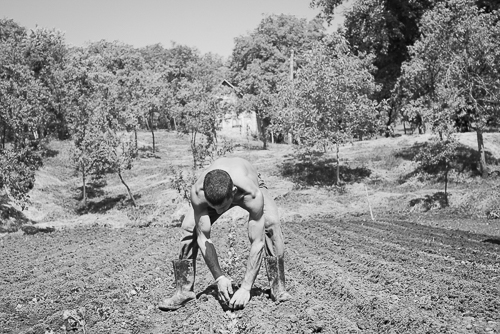The village of Chibed is famous for its onions and during communism, large agricultural cooperatives in Chibed were growing onions, which were delivered to large factories to feed the workers. After the fall of communism, the factories were closed down and since farmers had to work in cooperatives during communism, they started growing their own land instead. He told my guide that a long time ago, farms were so large that farmers could feed many people, but as they got children who inherited their land, their plots got steadily smaller and also spread out. Mr. Madaras has 37 plots of land! After the fall of communism, these tiny plots were given back to their former owners if possible, but all the farmers preferred to work for themselves. However, he led a good life until 2007 when Romania joined the EU and he had to compete with large farms in Western Europe, and whose products were soon imported to Romania. Naturally, he and a lot of other small-scale farmers couldn’t compete on price and many simply gave up. A solution would be to form a cooperative, but they are still unpopular due to many bad memories from forced collectivisation during communism.
Mr. Madaras has 4 greenhouses, 3 with hybrid tomatoes and one with traditional ones. Since hybrids look better than traditional ones, they are chosen by customers at supermarkets, but he has to buy seeds from plant breeders, making them more expensive than traditional ones. He’s pessimistic, but continues working the land in respect of his father and grandfather.
During our visit, three young men were working for Mr. Madaras on a small field, one was making rows, a second one was distributing celery plants and a third one was planting them.
Lajos Péterfi, another farmer from Chibed, although he looked older than Mr Madaras was instead optimistic. He’s growing onions, selling vegetables and walnuts at farmers’ markets, he’s running a flour mill and he’s making pálinka unofficially. He’s versatile and adaptable, necessary characteristics when you are a small-scale producer who have to compete with industrial agriculture.

